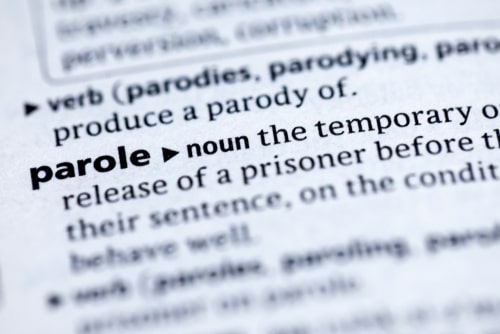The Latest Updates to Texas Parole Special Conditions Policy
 If you or a loved one is on parole or facing potential parole, it is essential to have a Texas lawyer who stays current on the latest policies from the Texas Department of Criminal Justice (TDCJ). The TDCJ recently released an updated policy, effective November 30, 2023, regarding the imposition, withdrawal, and modification of special conditions for parolees through their Offender Information Management System (OIMS).
If you or a loved one is on parole or facing potential parole, it is essential to have a Texas lawyer who stays current on the latest policies from the Texas Department of Criminal Justice (TDCJ). The TDCJ recently released an updated policy, effective November 30, 2023, regarding the imposition, withdrawal, and modification of special conditions for parolees through their Offender Information Management System (OIMS).
What are Parole Special Conditions?
When an individual is granted parole or mandatory supervision release, the Board of Pardons and Paroles (BPP) can impose special conditions on top of the standard conditions of release. These could include things like mandating participation in substance abuse treatment, restricting travel outside specified counties, prohibiting contact with minors, requiring sex offender registration and treatment, and many others.
Key Changes in the New Policy
The new policy clarifies the procedures for parole officers to request changes to a parolee’s special conditions after release. The goal is to allow for modifications based on the parolee’s needs, progress in programming, and overall rehabilitation, while still meeting public safety requirements. Certain conditions can be satisfied directly by the parole officer in OIMS once the parolee completes the mandated programming, such as anger management classes or educational skill benchmarks.
However, the policy specifies that other more restrictive conditions, like sex offender registration, electronic monitoring, child safety zones, and prohibitions on leaving the state, require a transmittal through OIMS to return to the BPP for approval to modify or withdraw. Some conditions, like those related to substance abuse treatment, gang activity, and relationships and contact with minors, can be modified but not completely withdrawn during supervision.
Geo-Restrictions and Higher-Level Approvals
Under the new policy, any requests to modify the condition prohibiting entry into a specified county must be approved by the TDCJ Parole Division Region Director. Additionally, the deputy director must sign off to totally remove that condition. This demonstrates how seriously the TDCJ takes geo-restrictions for parolees when the BPP determines they are warranted.
What Parolees and Their Families Should Know
For parolees and their families, it is important to understand that special conditions can evolve over time with good behavior and progress, but certain core conditions will remain in place as long as the individual is under supervision. Parolees should work closely with their parole officers to understand their conditions, complete required programming, and petition for modifications when appropriate.
If a parolee feels their conditions are overly restrictive or inappropriate, she can contest them through the transmittal process outlined in the policy and even petition up to the BPP. An attorney can help make the case and advocate for the parolee. However, it is crucial that those challenges go through the proper TDCJ channels, not just arguments with the parole officer.
Work With a Dallas, TX Criminal Defense Attorney
This policy provides helpful transparency into the processes and reasoning behind changes to parole special conditions. However, it also underscores the significant discretionary authority the TDCJ and BPP have to set and modify conditions. That is why it is so important for parolees to have a Fort Worth, TX criminal defense lawyer who can provide guidance and fight for their interests when needed. Call Pullan & Young at 936-647-1540 for a free consultation.







